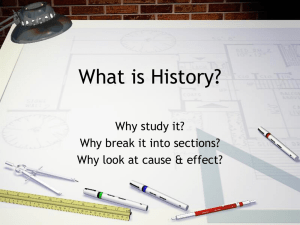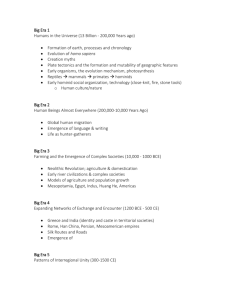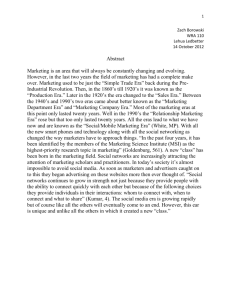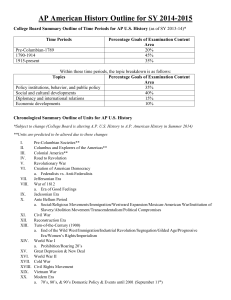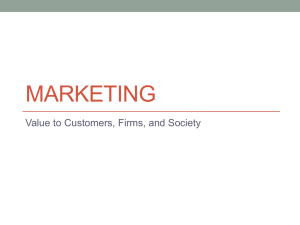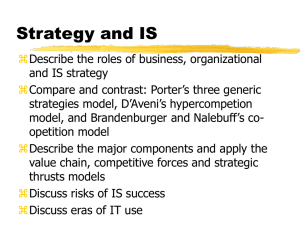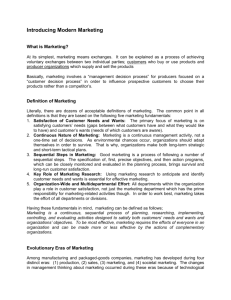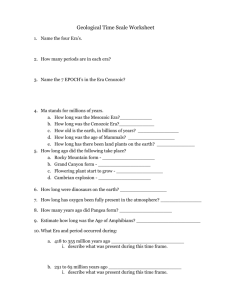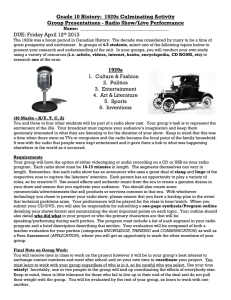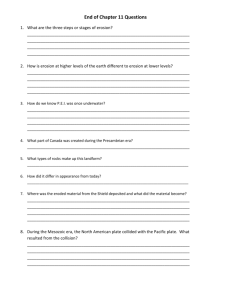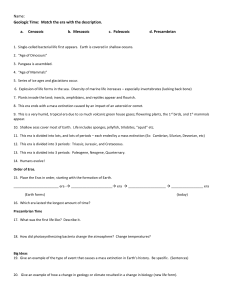World History II - Final Exam Requirements
advertisement
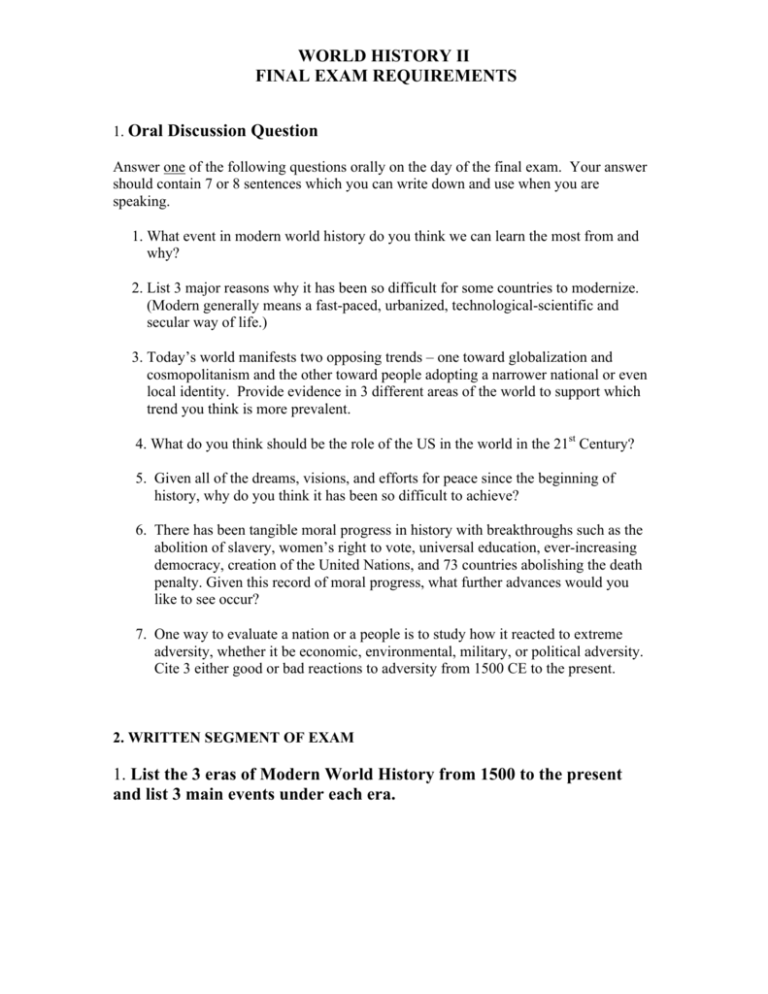
WORLD HISTORY II FINAL EXAM REQUIREMENTS 1. Oral Discussion Question Answer one of the following questions orally on the day of the final exam. Your answer should contain 7 or 8 sentences which you can write down and use when you are speaking. 1. What event in modern world history do you think we can learn the most from and why? 2. List 3 major reasons why it has been so difficult for some countries to modernize. (Modern generally means a fast-paced, urbanized, technological-scientific and secular way of life.) 3. Today’s world manifests two opposing trends – one toward globalization and cosmopolitanism and the other toward people adopting a narrower national or even local identity. Provide evidence in 3 different areas of the world to support which trend you think is more prevalent. 4. What do you think should be the role of the US in the world in the 21st Century? 5. Given all of the dreams, visions, and efforts for peace since the beginning of history, why do you think it has been so difficult to achieve? 6. There has been tangible moral progress in history with breakthroughs such as the abolition of slavery, women’s right to vote, universal education, ever-increasing democracy, creation of the United Nations, and 73 countries abolishing the death penalty. Given this record of moral progress, what further advances would you like to see occur? 7. One way to evaluate a nation or a people is to study how it reacted to extreme adversity, whether it be economic, environmental, military, or political adversity. Cite 3 either good or bad reactions to adversity from 1500 CE to the present. 2. WRITTEN SEGMENT OF EXAM 1. List the 3 eras of Modern World History from 1500 to the present and list 3 main events under each era. ERAS OF MODERNWORLD HISTORY Early Modern Era – Beginning of Global Era 1450-1750 • • • • • • • Emergence of Global Economy Colombian Exchange Large Territorial “Gunpowder” Empires - Ottoman, Safavid, Mughal Emergence of European maritime dominance and European empires Transoceanic linking of the world’s continents International conflict with countries struggling for power and influence Waves of migration, voluntary and involuntary, on a massive scale Era of European Moment in World History 1750-1914 • • • • Age of Revolutions – political, industrial, intellectual Resistance and turmoil as a result of revolutions Rise of nationalism, socialism, communism, and colonialism Resistance to colonialism Most Recent Century 1914-2008 • • • • • • • • • • Collapse and Recovery of Europe World Wars I and II and Cold War Evolution of Weaponry, including air power, intercontinental missiles bombers, WMD, chemical, biological, and nuclear weapons Evolution of Human Rights, women’s liberation, civil rights, anti-apartheid Scaffolding for international cooperation – League of Nations, United Nations, International Criminal Court, international trade organizations, international science cooperation, international environmental organizations, postal services, international weather services, disaster relief Environmental degradation, threats to biodiversity, and efforts to reverse these trends Ever-increasing global interdependence reflected in personal, local, regional, national and international encounters Instability in the Middle East Re-emergence of China and India as powerful civilizations Mass culture, internet, and travel 2. What is your view of human nature and how has it changed since taking World History? (Human nature means that essential essence which makes human beings human.)
